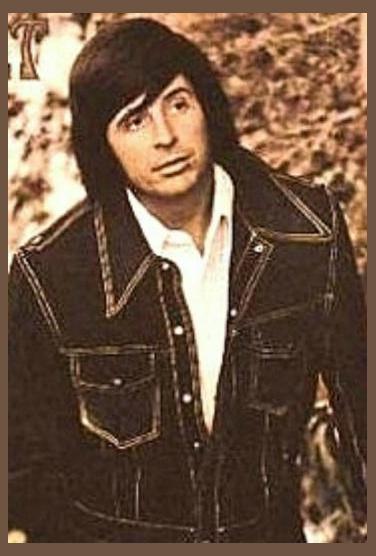 Lobo
Lobo
Lobo: The Ballad of a Troubadour
In the annals of folk and country music, Lobo holds a revered place as the singer-songwriter behind the timeless classic "I'd Love You to Want Me." This haunting ballad soared to the top of the charts in 1971, cementing Lobo's status as a musical icon.
Early Life and Influences:
Born Roland Kent LaVoie in Florida in 1943, Lobo's passion for music ignited early. Inspired by the likes of Bob Dylan and Simon & Garfunkel, he honed his craft as a folk singer, strumming his guitar in coffeehouses and small venues.
The Breakthrough:
In 1971, Lobo signed a record deal with Big Tree Records. His debut album, titled simply "Lobo," featured "I'd Love You to Want Me." The song became an instant smash, its evocative lyrics and gentle melody resonating with listeners worldwide.
Challenges and Controversies:
Lobo's career was not without its obstacles. The success of "I'd Love You to Want Me" brought intense pressure and the expectations of a follow-up hit. He struggled to replicate his initial triumph, leading to some creative frustration.
Furthermore, Lobo faced a legal battle with his former producer, Phil Ramone. A dispute over royalties and creative control culminated in a lawsuit that ultimately ended Lobo's relationship with Ramone.
Musical Evolution:
Despite these challenges, Lobo continued to release albums throughout the 1970s and 1980s. His music evolved over time, incorporating elements of rock, pop, and even disco. Notable hits from this period include "Don't Expect Me to Be Your Friend" and "She's a Lady."
Members:
Lobo's backing band underwent changes throughout his career. Initially, it consisted of Bob Johnson on guitar, John Howarth on bass, and Mike Lewis on drums. Other notable members included Lee Loughnane, who later joined the band Chicago, and Rick Cunha, who went on to achieve success as a solo artist.
Legacy and Impact:
Lobo's music continues to inspire and resonate with generations of listeners. "I'd Love You to Want Me" remains an enduring anthem of love and longing, while his other songs have found a place in the hearts of countless fans.
Today, Lobo continues to perform and record, sharing his timeless songs with audiences worldwide. His legacy as a troubadour who captured the essence of human emotion through music is secure in the annals of music history.
In the annals of folk and country music, Lobo holds a revered place as the singer-songwriter behind the timeless classic "I'd Love You to Want Me." This haunting ballad soared to the top of the charts in 1971, cementing Lobo's status as a musical icon.
Early Life and Influences:
Born Roland Kent LaVoie in Florida in 1943, Lobo's passion for music ignited early. Inspired by the likes of Bob Dylan and Simon & Garfunkel, he honed his craft as a folk singer, strumming his guitar in coffeehouses and small venues.
The Breakthrough:
In 1971, Lobo signed a record deal with Big Tree Records. His debut album, titled simply "Lobo," featured "I'd Love You to Want Me." The song became an instant smash, its evocative lyrics and gentle melody resonating with listeners worldwide.
Challenges and Controversies:
Lobo's career was not without its obstacles. The success of "I'd Love You to Want Me" brought intense pressure and the expectations of a follow-up hit. He struggled to replicate his initial triumph, leading to some creative frustration.
Furthermore, Lobo faced a legal battle with his former producer, Phil Ramone. A dispute over royalties and creative control culminated in a lawsuit that ultimately ended Lobo's relationship with Ramone.
Musical Evolution:
Despite these challenges, Lobo continued to release albums throughout the 1970s and 1980s. His music evolved over time, incorporating elements of rock, pop, and even disco. Notable hits from this period include "Don't Expect Me to Be Your Friend" and "She's a Lady."
Members:
Lobo's backing band underwent changes throughout his career. Initially, it consisted of Bob Johnson on guitar, John Howarth on bass, and Mike Lewis on drums. Other notable members included Lee Loughnane, who later joined the band Chicago, and Rick Cunha, who went on to achieve success as a solo artist.
Legacy and Impact:
Lobo's music continues to inspire and resonate with generations of listeners. "I'd Love You to Want Me" remains an enduring anthem of love and longing, while his other songs have found a place in the hearts of countless fans.
Today, Lobo continues to perform and record, sharing his timeless songs with audiences worldwide. His legacy as a troubadour who captured the essence of human emotion through music is secure in the annals of music history.